Normal Building Vocabulary Worksheets for Ages 3-6 - Page 4
88 filtered results
-
From - To
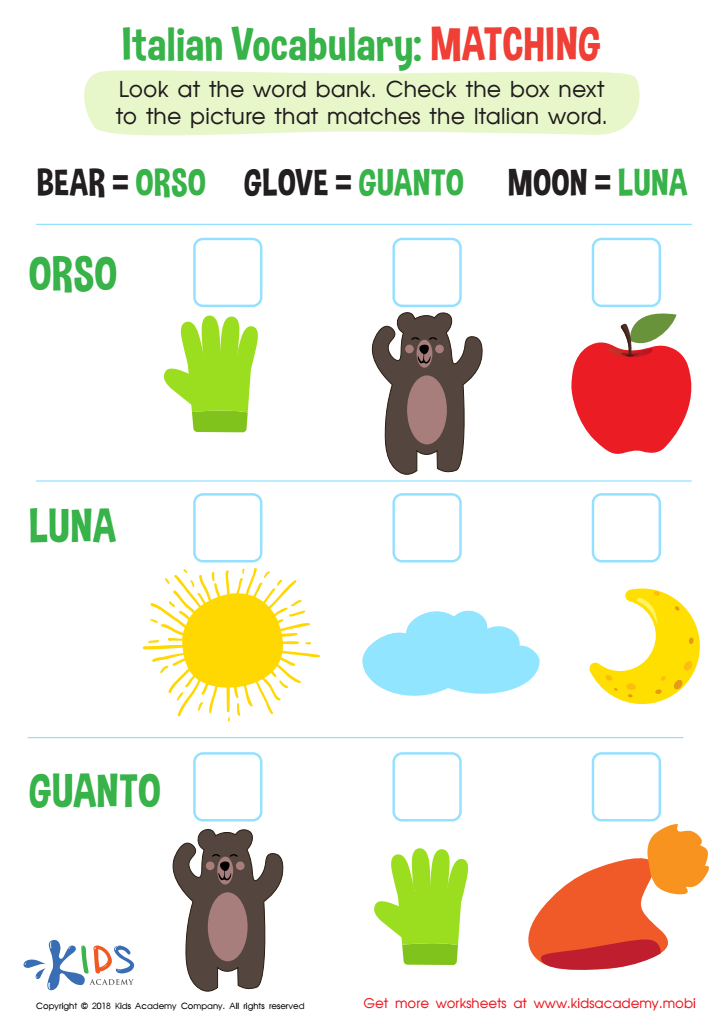

Italian Vocabulary Matching Worksheet
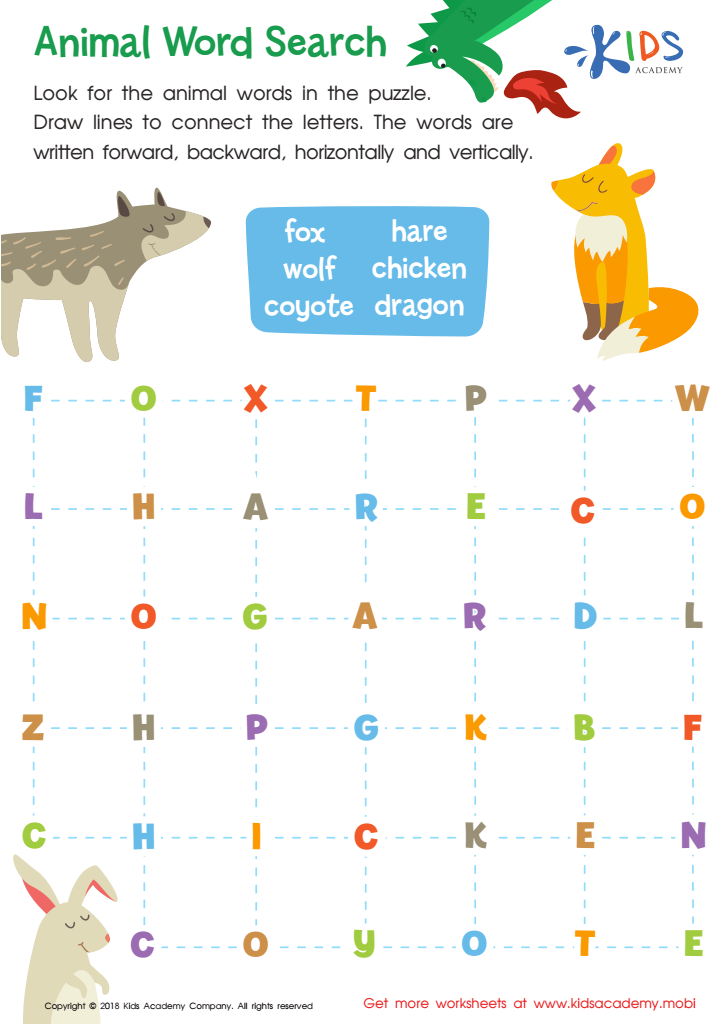

Animal Word Search Worksheet
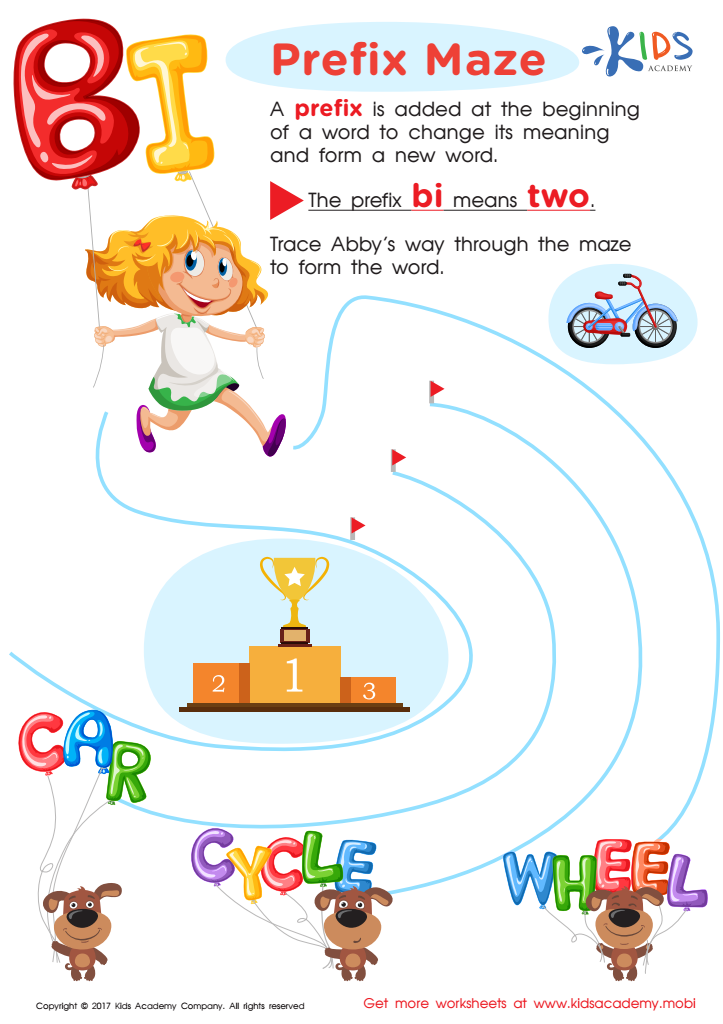

Prefix Bi Words Worksheet
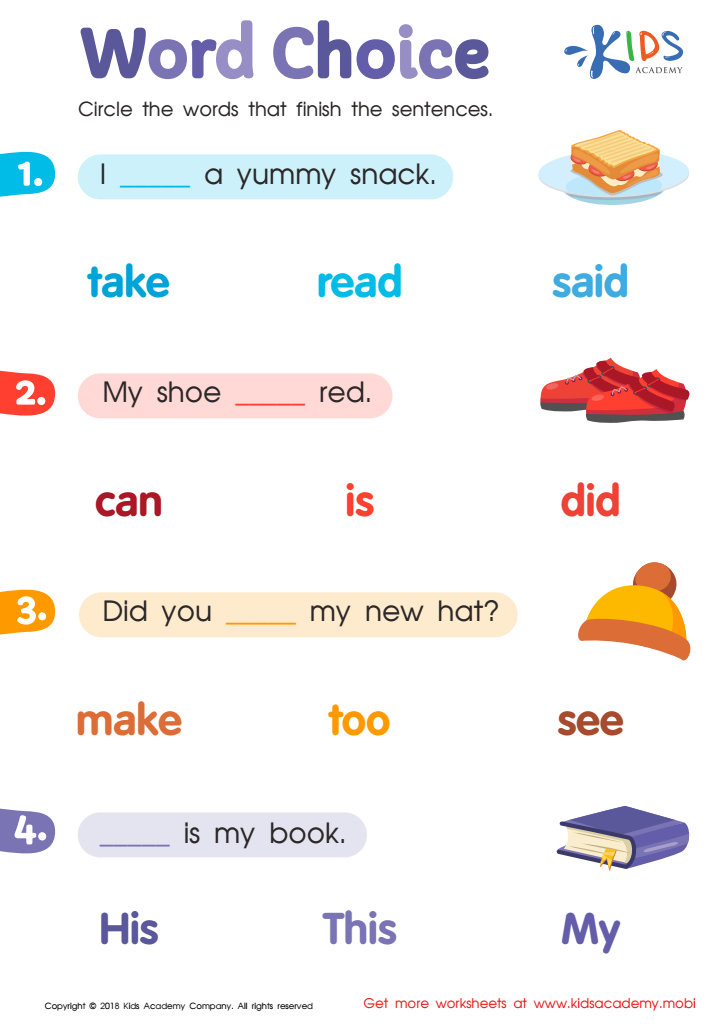

Word Choice Worksheet
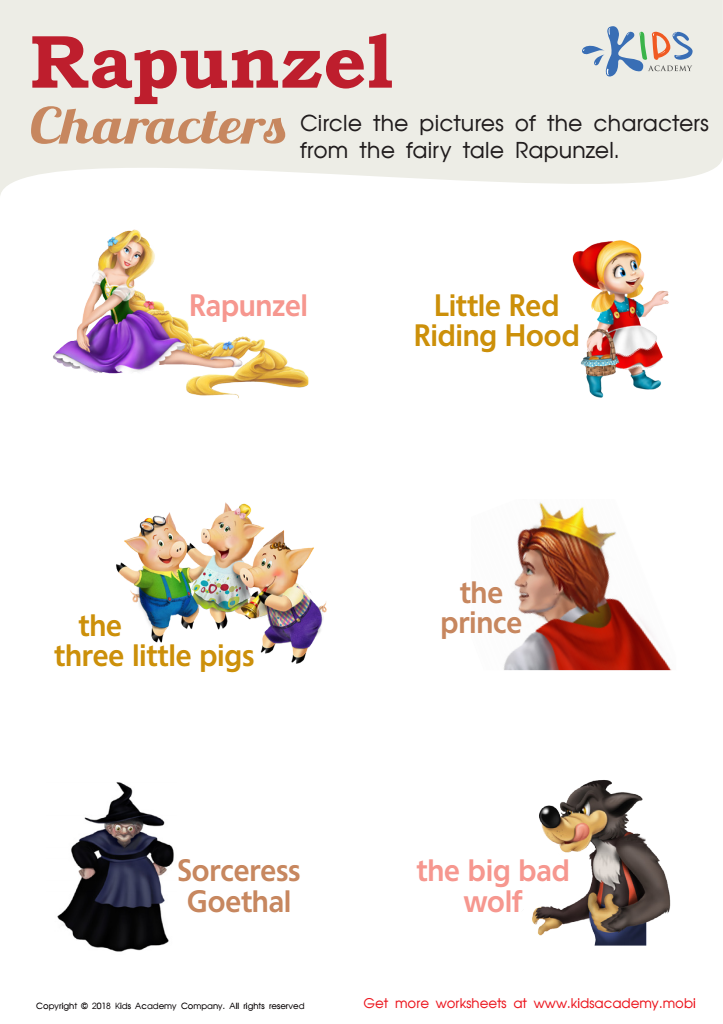

Rapunzel Characters Worksheet
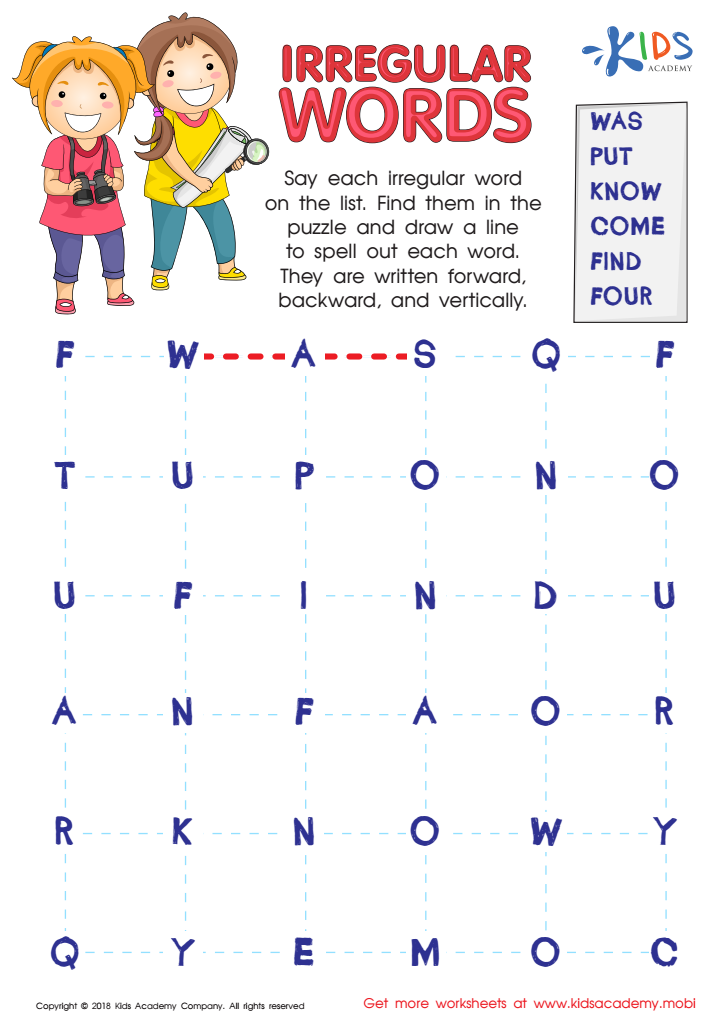

Irregular Words Worksheet
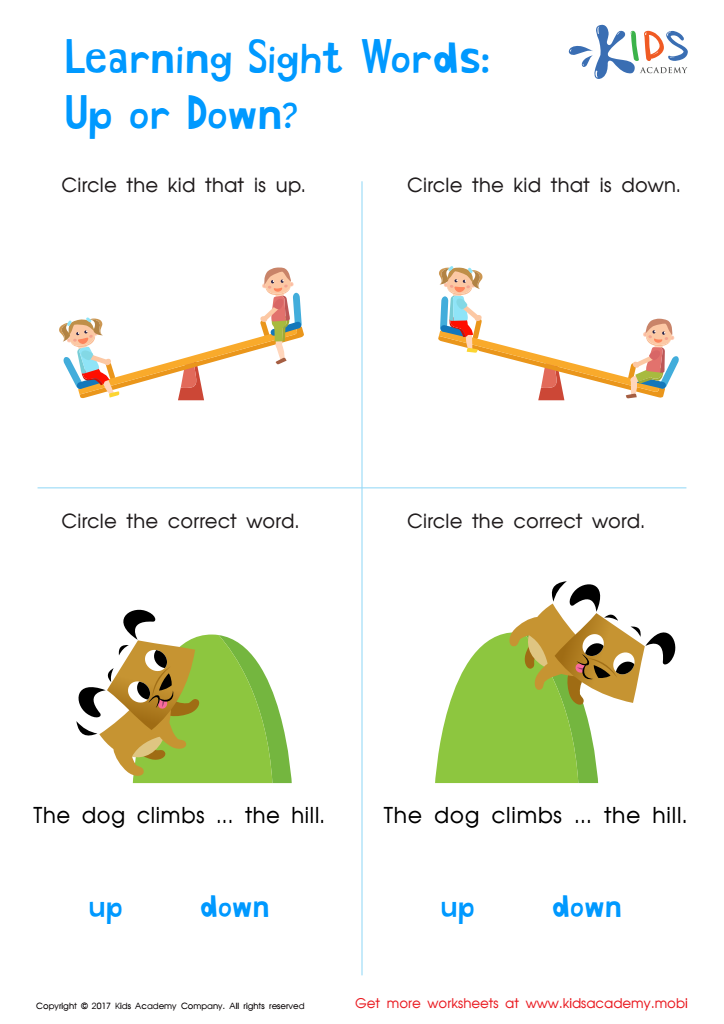

Up or Down Printable Sight Words Worksheet
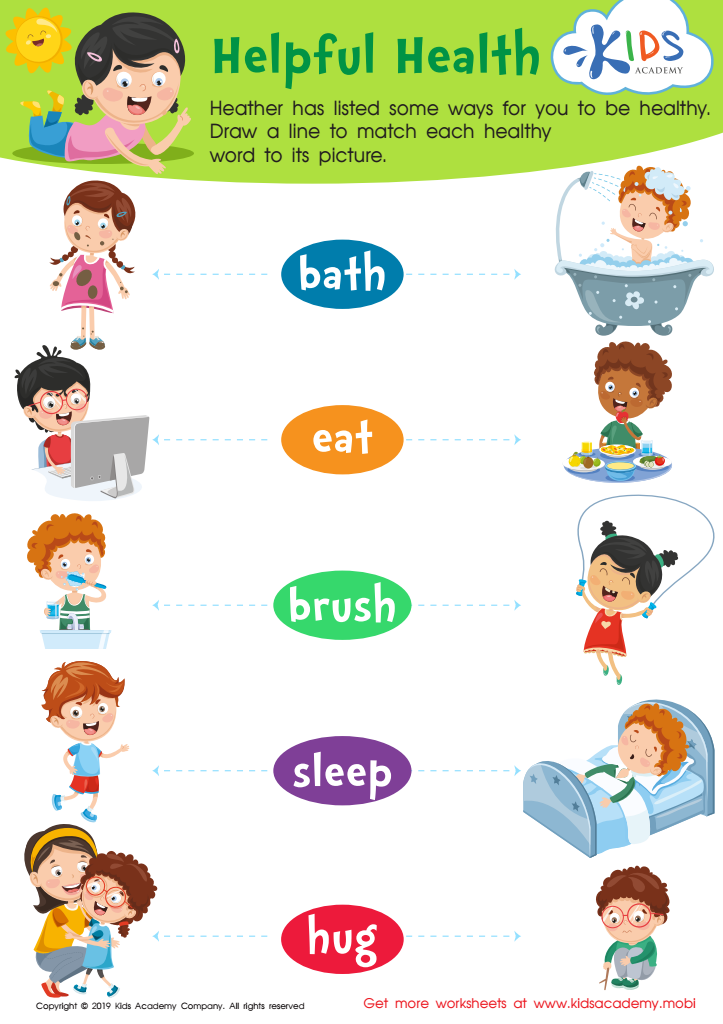

Helpful Health Worksheet
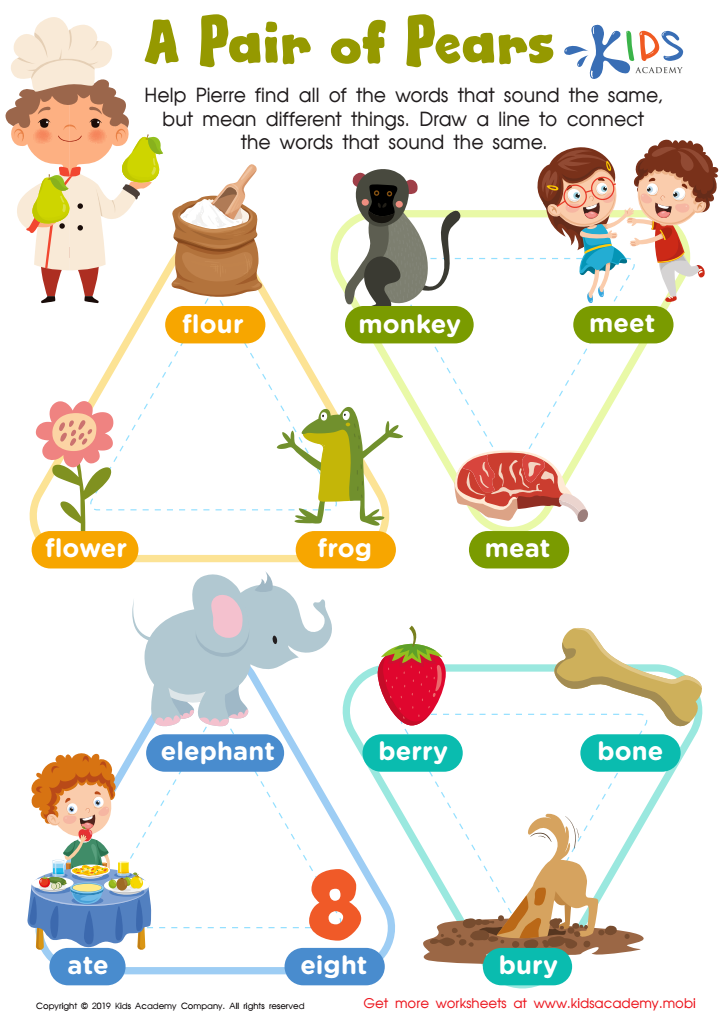

Pair Pears Worksheet
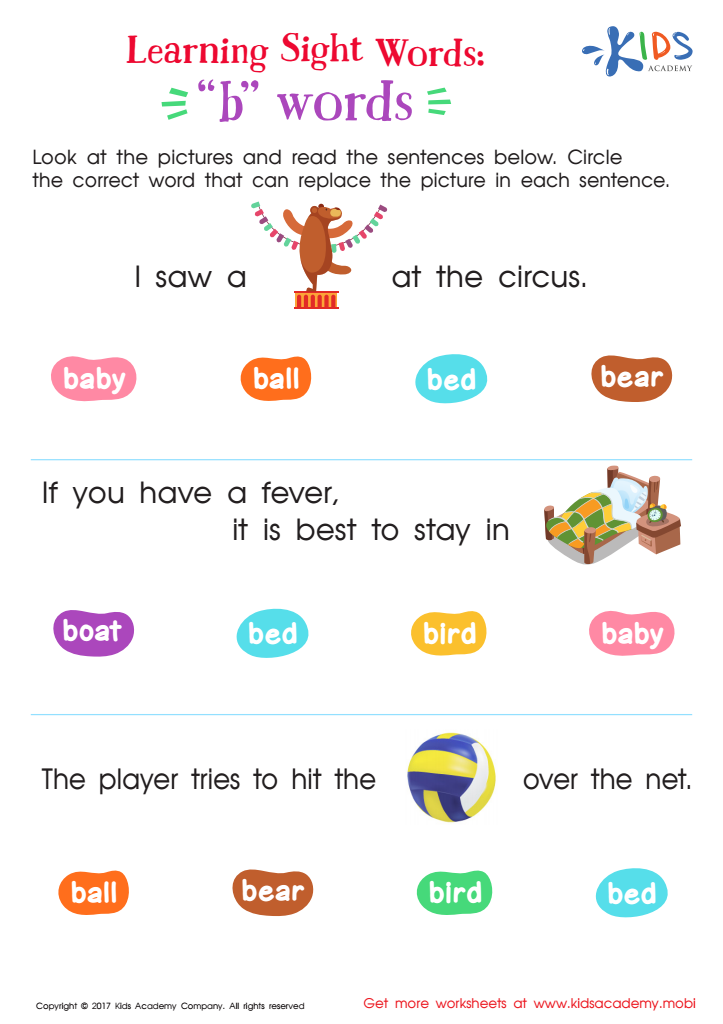

"B" Words Printable Sight Words Worksheet
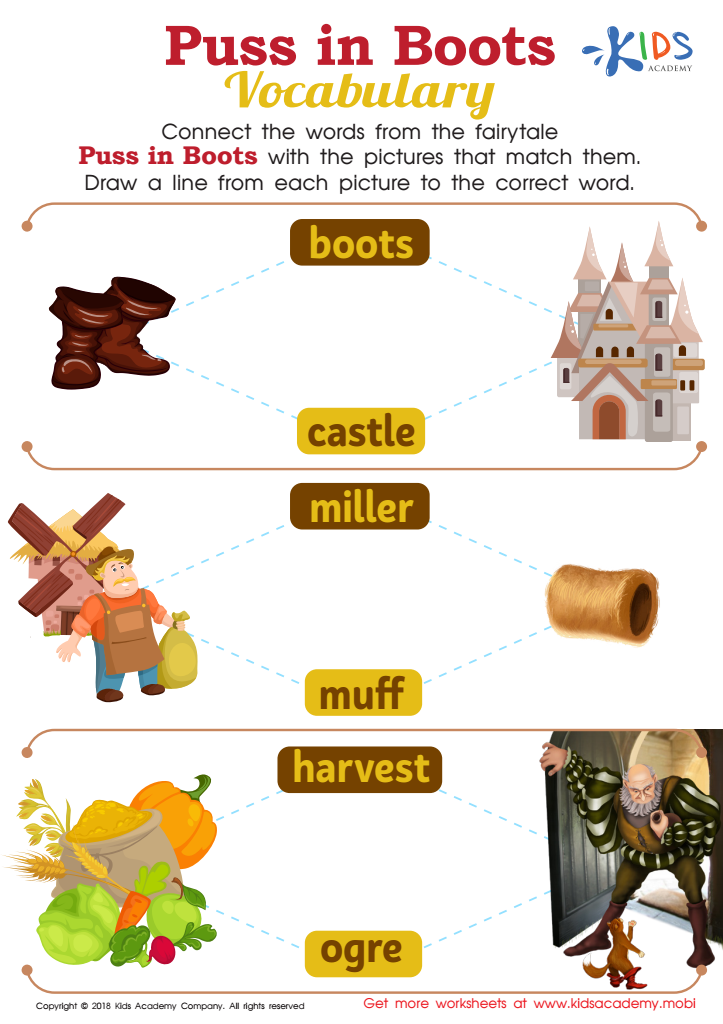

Puss in Boots Vocabulary Worksheet
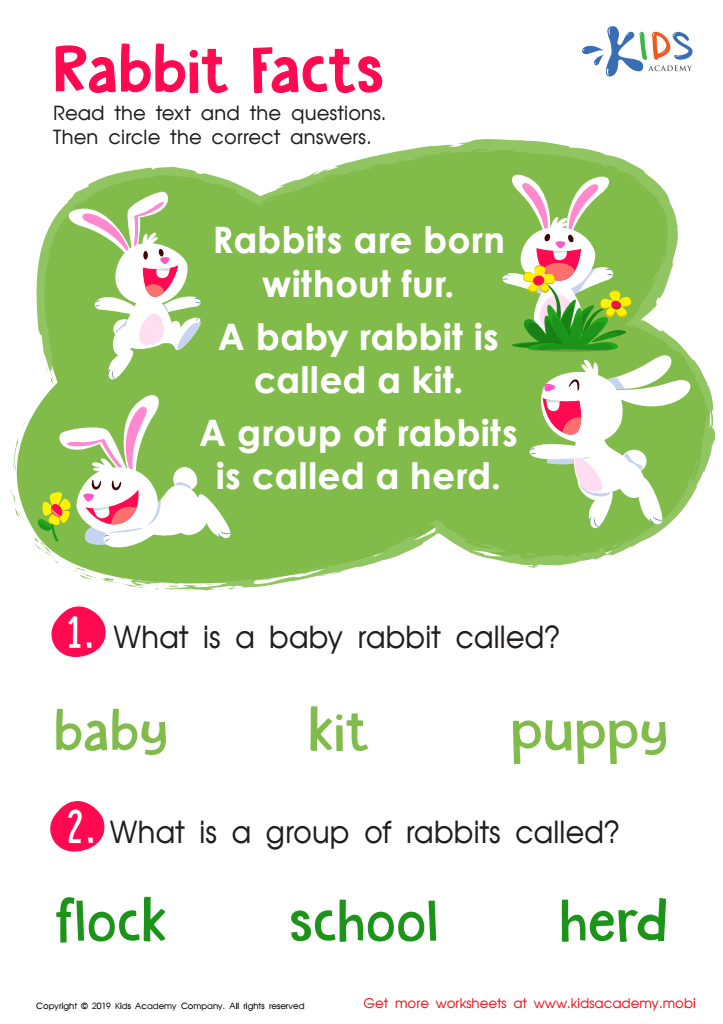

Rabbit Facts Worksheet
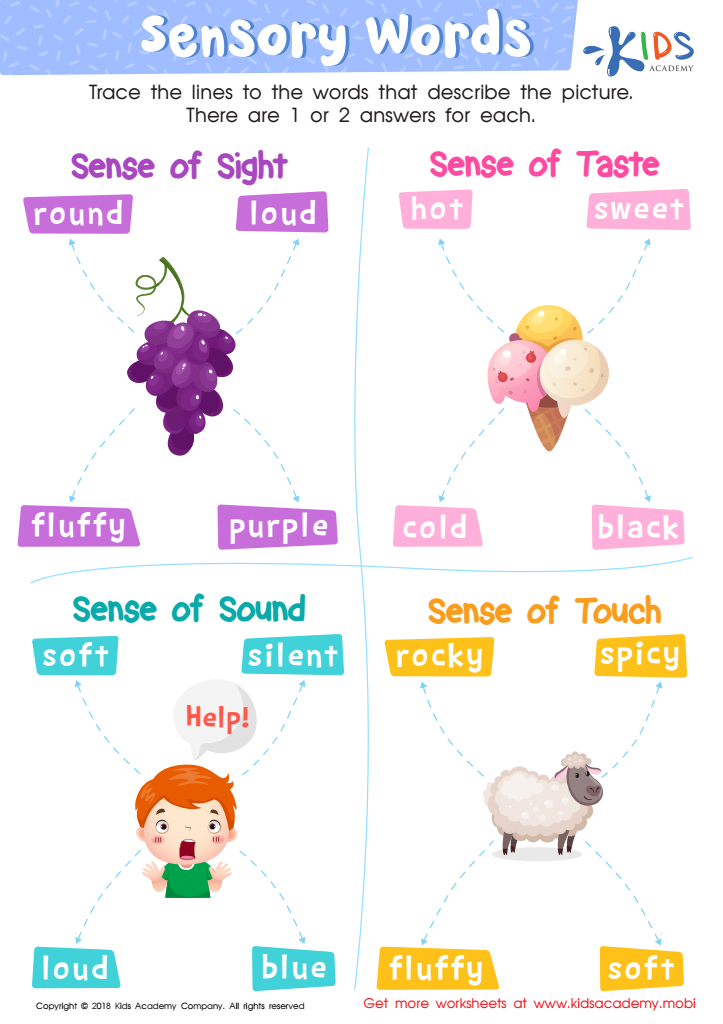

Sensory Words Worksheet
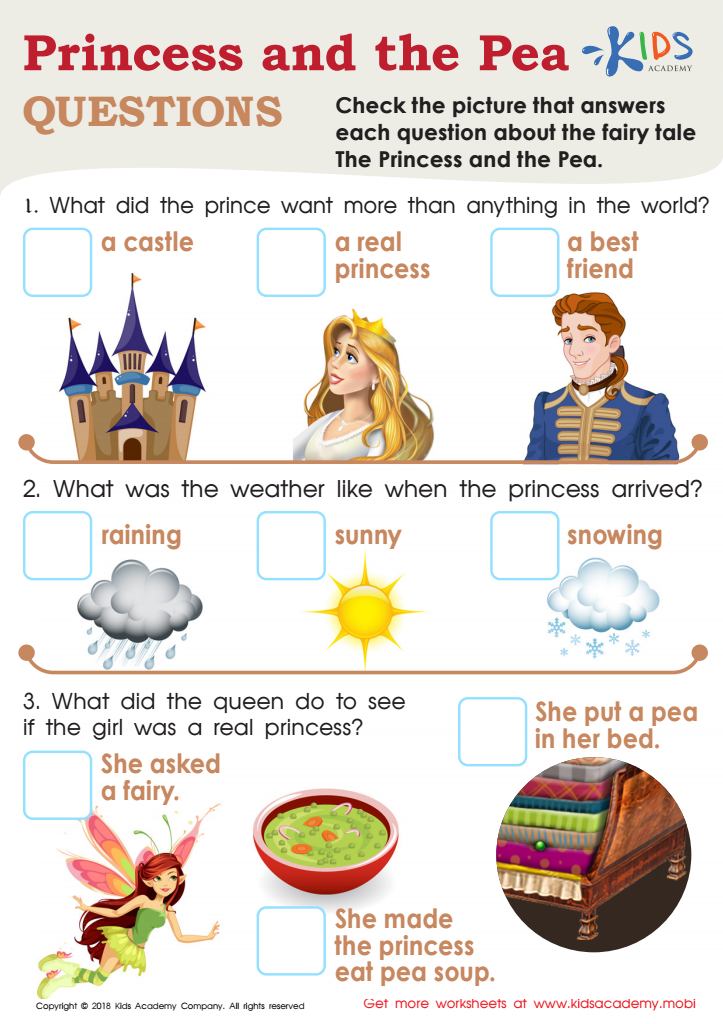

Princess and the Pea Questions Worksheet
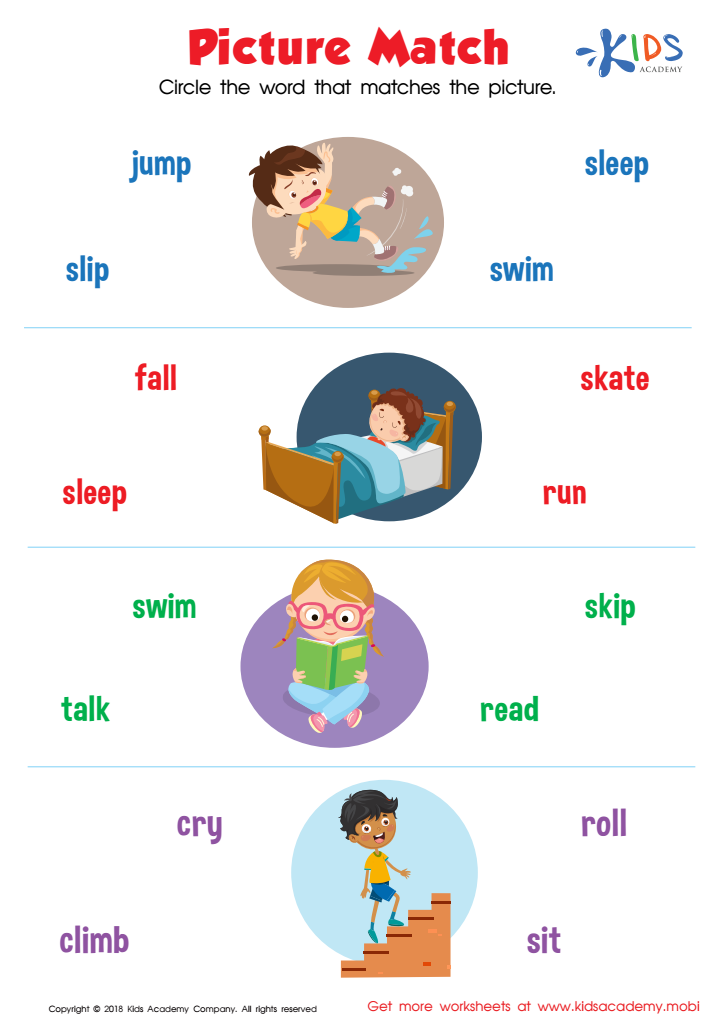

Picture Match Worksheet
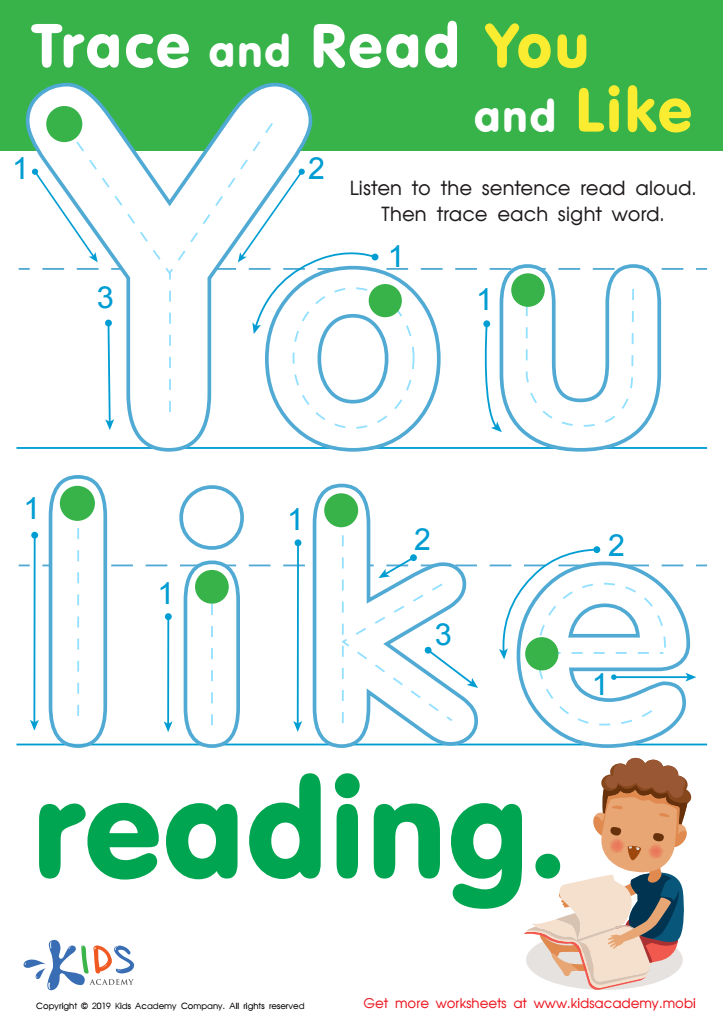

Trace Read You Like Worksheet
Building vocabulary in ages 3-6 is crucial for several compelling reasons, pivotal for both parents and teachers to acknowledge. Firstly, the early years are a critical window for language development, where children's brains are primed for absorbing new words and meanings. A rich vocabulary supports overall language skills, including speaking, reading, and writing. This is foundational for academic success since a robust vocabulary enhances comprehension and communication.
Moreover, vocabulary growth is linked to cognitive development. Learning new words boosts children’s ability to think and reason, as they can better express and understand complex ideas. This developmental phase is also critical for social skills. A well-developed vocabulary allows young children to articulate their feelings, interact more effectively with peers and adults, and build strong relationships.
Caring about vocabulary development at this stage involves engaging in regular conversations, reading a variety of books, and exposing children to diverse and rich language environments. Activities like storytelling, singing, and playing word games can make learning new words enjoyable and effective.
Finally, early vocabulary is a predictor of later academic achievement. Children with strong vocabulary skills enter formal schooling with a significant advantage, better prepared for reading and writing tasks. Hence, nurturing vocabulary from ages 3 to 6 lays a solid foundation for lifelong learning and success.

 Assign to My Students
Assign to My Students


























